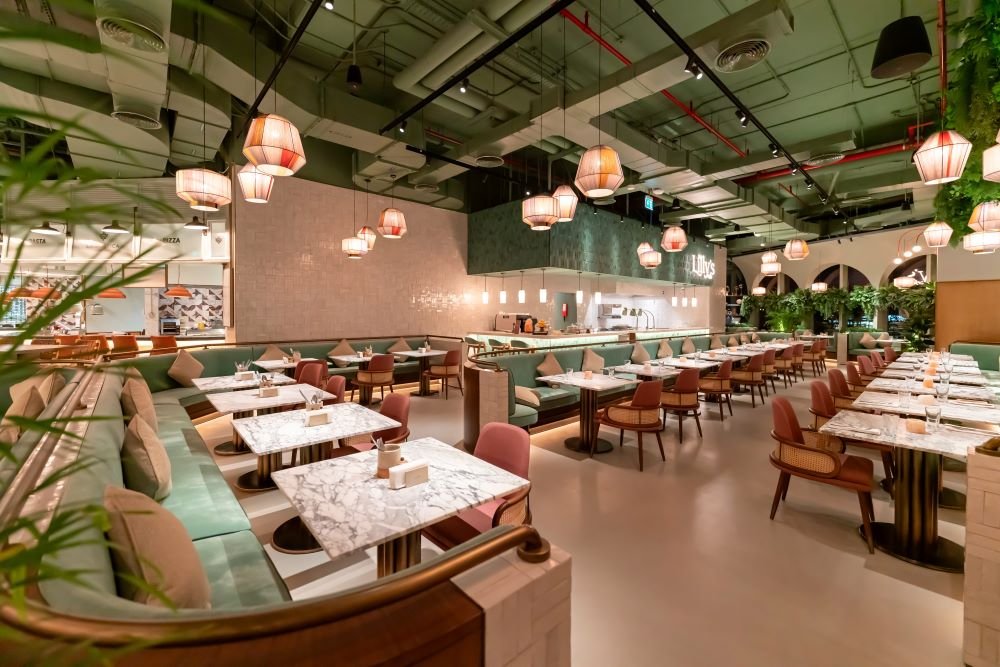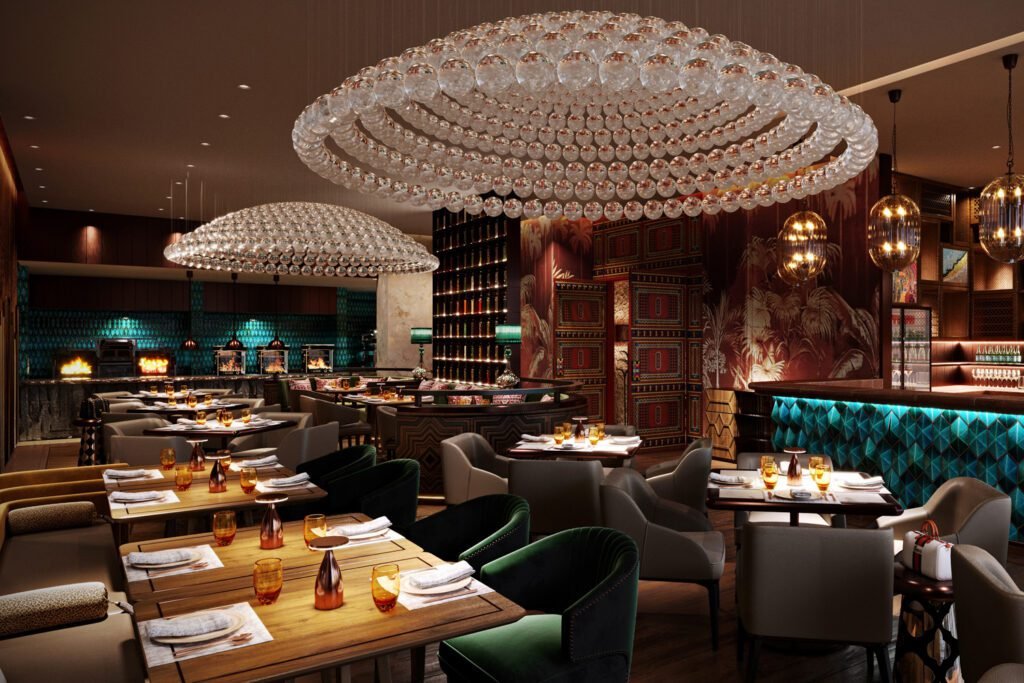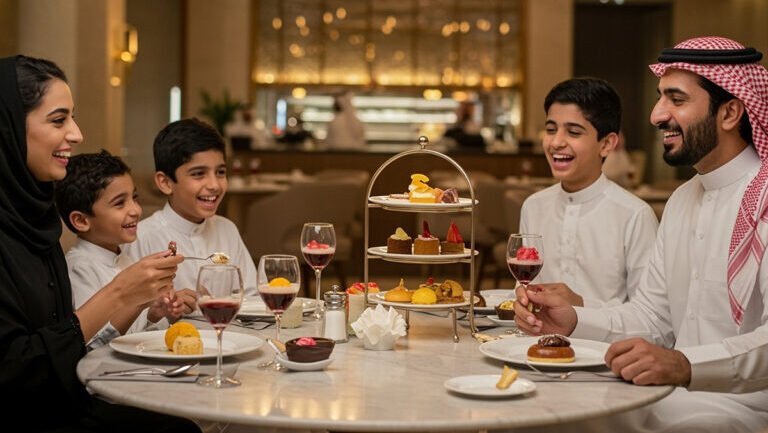Saudi Arabia fine dining regulations are ushering in a new era of elevated luxury dining, as the Ministry of Municipal and Rural Affairs and Housing (MoMRAH) implements sweeping changes to redefine the gastronomic landscape across the Kingdom. The move signals the government’s growing emphasis on creating world-class culinary experiences, aligning with Vision 2030’s goal of diversifying the economy and enhancing quality of life.
These regulations are not just about food. They are about culture, lifestyle, and tourism. For a nation once known for its conservative dining scene, this transformation is monumental.
In this article, we explore what these new regulations mean, why they matter, and how they will impact Saudi Arabia’s fine dining industry, both for locals and international visitors.

A New Chapter for Saudi Arabia’s Culinary Identity
Until recently, fine dining in Saudi Arabia was limited in scope due to various social and regulatory restrictions. However, the Kingdom has been rapidly modernizing in recent years. The latest regulations from MoMRAH represent one of the boldest steps yet toward culinary sophistication.
The new rules aim to:

- Elevate service standards in restaurants classified as fine dining
- Standardize luxury dining experiences in terms of decor, service, and presentation
- Attract Michelin-star chefs and global culinary brands
- Promote Saudi heritage through high-end cuisine
- Support economic diversification and increase tourism
Saudi Arabia’s shift in approach is not accidental. It’s deeply tied to Vision 2030, the Kingdom’s ambitious national transformation plan. By positioning itself as a global destination for luxury dining, Saudi Arabia is expanding its cultural and entertainment offerings beyond the traditional oil economy.
What Are the New Fine Dining Regulations?
According to the Saudi Gazette, the regulations define what qualifies as a fine dining restaurant and outline specific standards that must be met to obtain this classification.
Key Aspects of the New Fine Dining Regulations
- Service Excellence
Waitstaff must be professionally trained.
Personalized service is mandatory.
Fine dining establishments must offer valet parking and host services. - Interior and Ambience
Interior design must reflect elegance, luxury, and thematic consistency.
Lighting, music, and furniture must meet specific aesthetic criteria.
Private dining rooms and VIP areas are encouraged. - Menu Standards
Multi-course menus with gourmet offerings.
Presentation and ingredient quality are strictly regulated.
Dishes must reflect creativity, often combining local and international flavors. - Chef Credentials
Chefs must have internationally recognized certifications or Michelin-star experience.
Establishments must disclose the chef’s background and experience. - Technology and Sustainability
Digital menus, table reservations, and feedback systems are required.
Environmental sustainability practices like waste reduction and energy efficiency must be implemented. - Cultural Integration
Restaurants are encouraged to incorporate Saudi cultural elements into their décor and menu, such as locally sourced dates, herbs, and Arabian design motifs.
These standards will be monitored and evaluated regularly by a dedicated task force from MoMRAH, ensuring that restaurants maintain compliance to retain their fine dining status.
Why Are These Regulations Important?
The fine dining regulations serve multiple national goals.
Enhancing Tourism
Luxury travelers often seek exceptional dining experiences. With Saudi Arabia hosting events like Formula 1, international film festivals, and major expos, a vibrant fine dining scene adds value to the tourism ecosystem.
Economic Diversification
Saudi Arabia is actively reducing its reliance on oil. Expanding the food and hospitality sectors opens doors to new jobs, foreign investments, and business opportunities.
Cultural Exchange
By inviting Michelin chefs and international restaurant chains, Saudi Arabia is embracing global culinary trends. At the same time, it showcases Saudi culinary heritage to the world, creating a unique cultural blend.
Job Creation and Skill Development
These regulations will fuel demand for trained chefs, hospitality managers, and service staff. This is a major opportunity for young Saudis to enter the workforce with specialized skills.

International Brands Show Interest
Even before the new regulations were officially announced, major global players had already started exploring the Saudi market. With Riyadh, Jeddah, and AlUla becoming magnets for luxury dining, several high-end brands have set up shop, including:
- Nobu – The Japanese-Peruvian fusion restaurant opened its doors in Riyadh
- LPM Restaurant & Bar – Offering French Mediterranean cuisine in Riyadh and Jeddah
- COYA – The London-based Latin American restaurant now operates in Riyadh
- Hakkasan – Known for upscale Chinese cuisine, has expressed interest in launching operations
With the new fine dining regulations in place, these brands and many more will find it easier to enter the market under clear, supportive guidelines.
Local Chefs and Entrepreneurs Rise to the Challenge
While international names generate buzz, local Saudi chefs are stepping up to define a modern national cuisine. These regulations create a platform for homegrown culinary talent to shine.
Restaurants such as:
- Suhail – Offering modern takes on traditional Saudi dishes
- Myazu – A contemporary Japanese-Saudi fusion restaurant
- Juniper – A Saudi-run fine dining spot blending Middle Eastern and global flavors
These establishments are becoming flag-bearers of a new Saudi culinary identity, balancing authenticity and innovation.
Challenges Ahead
Despite the optimism, the road ahead is not without hurdles. Restaurant owners and investors must navigate:
- Higher operational costs due to training, interior requirements, and ingredient sourcing
- Competition for skilled talent, both local and international
- Cultural adaptation, especially for global brands unfamiliar with local customs
MoMRAH has promised supportive measures such as licensing guidance, vocational training programs, and tourism promotion efforts to help restaurants adjust to the new expectations.
What This Means for Diners in Saudi Arabia
For customers, the changes are overwhelmingly positive:
- Higher quality experiences across all touchpoints
- Diverse cuisines from world-renowned chefs and restaurants
- Enhanced service and ambience, making dining a luxurious event
- More inclusive menus, with options for locals, expatriates, and tourists alike
This creates a ripple effect, not only elevating the food scene but also encouraging a culture of dining out, social interaction, and culinary appreciation.

The Global Perspective: Competing with the World’s Best
With these changes, Saudi Arabia is now aiming to compete with global culinary hubs such as:
- Dubai, known for its glitzy dining scene
- Paris and London, the spiritual homes of fine dining
- New York and Tokyo, where food culture is part of the city’s identity
But the Saudi proposition is unique. It combines luxury with heritage, innovation with identity, and global with local.
Conclusion: A Culinary Revolution in the Making
Saudi Arabia fine dining regulations are more than just bureaucratic updates. They mark a historic moment in the Kingdom’s ongoing transformation, a moment where food becomes a central pillar in culture, tourism, and economic progress.
As restaurants adapt and innovate, diners are in for a journey that celebrates flavor, finesse, and forward thinking.
Whether you’re a seasoned gourmet, a curious traveler, or a passionate entrepreneur, Saudi Arabia’s evolving fine dining scene promises something for everyone — and it’s only just beginning.
Do follow UAE Stories on Instagram
Read More: Flying Taxis In Dubai By 2026: What You May Pay, Where They Will Land














